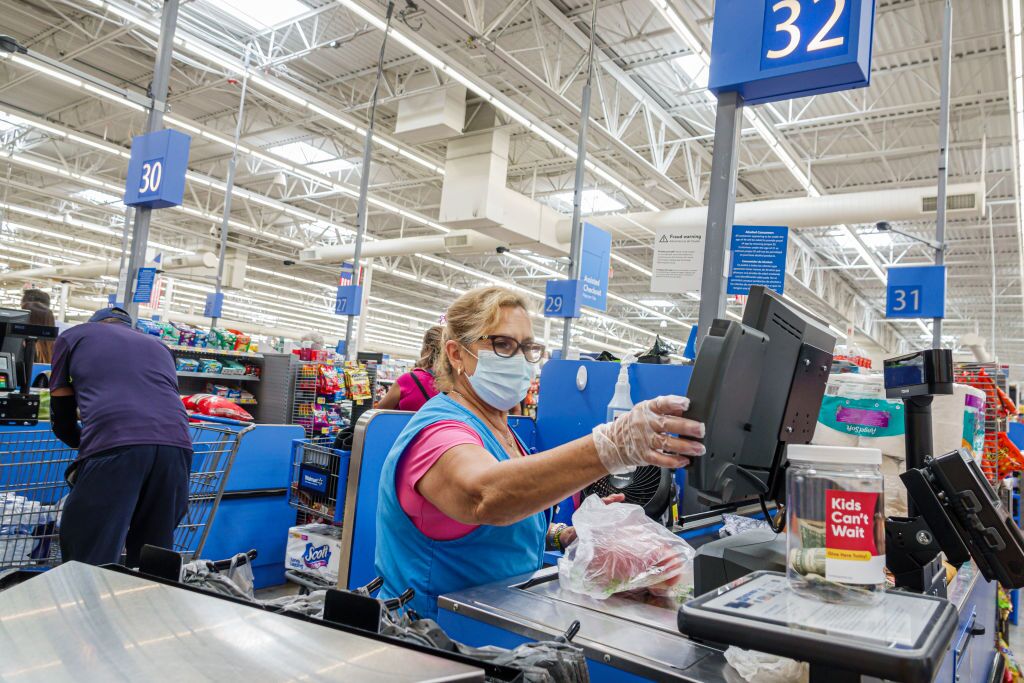
$6 billion school funding freeze sparks outcry over ‘cruel betrayal’ of students
July 3, 2025
House GOP clears key hurdle on Trump’s big bill, pushing it closer to vote
July 3, 2025While SNAP keeps grocery giants and food manufacturers afloat, they’re nowhere to be found when it’s under threat.
The obsequiously-titled “One Big Beautiful Bill” being considered by the Senate will slash spending on the Supplemental Nutrition Assistance Program, formerly food stamps, by $186 billion over ten years through a combination of benefit cuts, more rigid eligibility and work rules, and unfunded mandates on the states. While less draconian than the $286 billion demanded by House Republicans, the cuts are a 20 percent reduction in SNAP’s roughly $100 billion in annual spending and will cause some 2 million program enrollees to lose benefits. If enacted, the cuts will be the deepest in the program’s sixty-year history.
SNAP dollars help some 42 million Americans to purchase enough food to get through the month. Most SNAP households are near or below the federal poverty line ($32,150 for a family of four) and include some combination of children, the elderly and disabled. Many veterans, and a few active military families depend on SNAP. Popular misrepresentations aside, most working-age adults in SNAP households do in fact work, but earn too little to feed the household through an entire month. If there is a typical SNAP household, it is a working woman with children–for whom more rigid work rules will cause many to lose benefits.
In short, deep SNAP cuts will hurt millions of Americans struggling with low and inconsistent wages, no paid sick leave, unaffordable or nonexistent childcare and patchy access to healthcare–to get worse with Medicaid also on the OBBB chopping block. All to pay to extend tax breaks to the upper 1 percent enacted in 2017 under Trump 1.0. One Big Beautiful Bill, indeed.
These cuts also will impact America’s food corporations. That over $100 billion in SNAP benefits gets spent at some 250,000 participating food retailers, from Walmart to the local bodega, and accounts for 5 percent of all supermarket sales. So SNAP is a critical source of revenue in a notoriously thin-margin business. SNAP households shop where most Americans shop, so it’s no surprise that Walmart—the nation’s largest food retailer—gets a whopping 24 percent of SNAP dollars spent. SNAP also is important to food manufacturers like Tyson’s, ConAgra and Kraft Heinz, whose products are popular with cost-conscious consumers. Even for these corporate behemoths, a 20 percent SNAP haircut will sting; fewer customers with less to spend.
The cuts also will affect their workers. Because SNAP subsidizes income, it effectively subsidizes wages in industries that rely heavily on minimum-wage workers. The federal hourly minimum wage of $7.25 has remained unchanged since 2009, so millions of workers subject to it have lost considerable purchasing power since. No wonder an increasing percentage of SNAP households now include the working poor.

And no workers depend on SNAP as much as in the food industry, where women tend to cluster in lower-paid entry level jobs. The greatest beneficiary of SNAP’s wage subsidy? Walmart, of course, by dint of its size.
In short, SNAP matters a lot to corporate America. But the big food companies are in a political bind. While they support Trump’s tax breaks and regulatory policies, the deep cuts in SNAP proposed in the OBBB hits their profits and harms their workers.
So, what are they doing about it?
Not much, apparently. While food industry trade associations express concern about SNAP cuts, publish information supporting the program and meet with sympathetic congressional Democrats (in the minority in both houses), the big food companies stay silent, unwilling to stick out their individual necks. No peep out of Walmart or Kroger, nada from ConAgra, Tyson Foods or Kraft Heinz, zilch from General Mills, PepsiCo and Nestle.
Maybe their tax breaks are worth it. Maybe they want to stay on Trump’s good side as Robert Kennedy Jr. attacks their products. Whatever the reason, their silence speaks volumes.
What, you expected corporate solidarity with consumers and workers? You have not been paying attention.
!function(f,b,e,v,n,t,s)
{if(f.fbq)return;n=f.fbq=function(){n.callMethod?
n.callMethod.apply(n,arguments):n.queue.push(arguments)};
if(!f._fbq)f._fbq=n;n.push=n;n.loaded=!0;n.version=’2.0′;
n.queue=[];t=b.createElement(e);t.async=!0;
t.src=v;s=b.getElementsByTagName(e)[0];
s.parentNode.insertBefore(t,s)}(window,document,’script’,
‘https://connect.facebook.net/en_US/fbevents.js’);
fbq(‘init’, ‘200522034604820’);
fbq(‘track’, ‘PageView’);
Great Job Christopher Bosso & the Team @ Ms. Magazine Source link for sharing this story.




